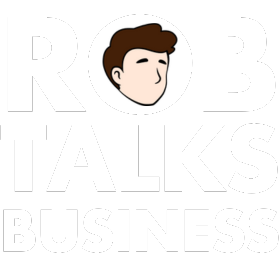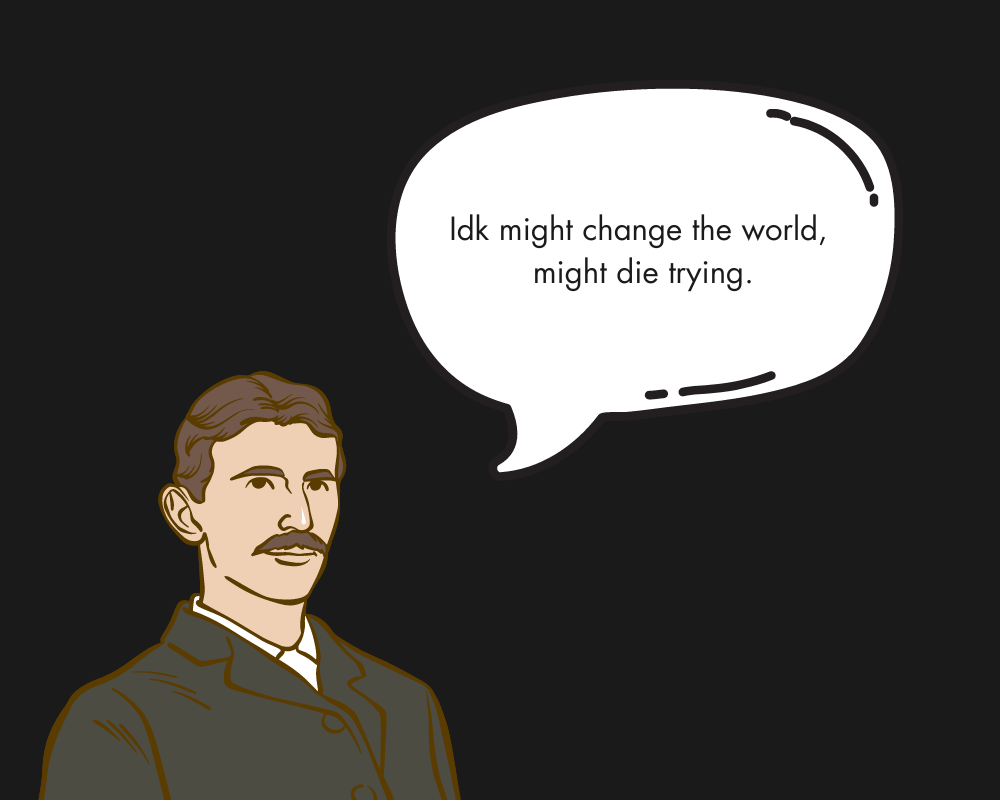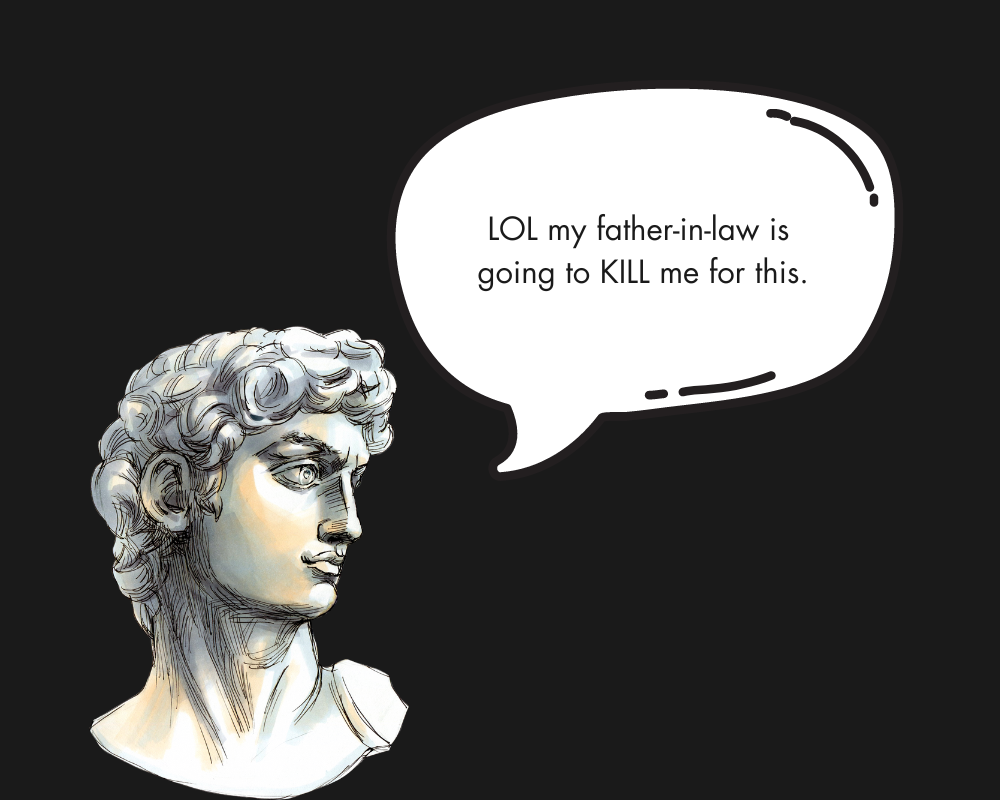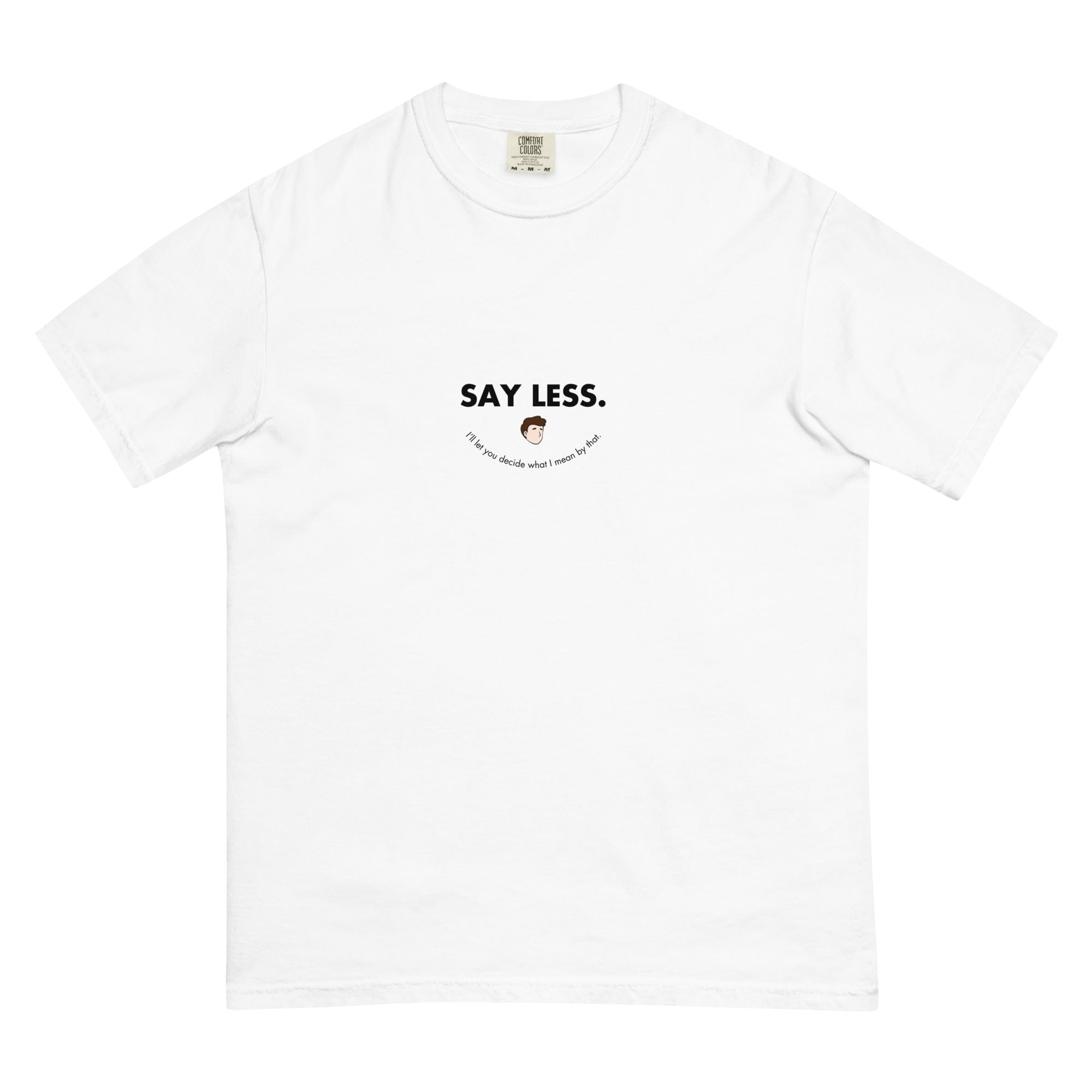"Undutiful words of a subject do often take deeper root than the memory of ill deeds." - Sir Walter Raleigh
The Power of Brevity and Ambiguity in Marketing: Lessons from the Oracle and Machiavelli
People are instinctively drawn to brands that embody the qualities they feel they lack.
The more deeply they are ashamed of their shortcomings, the more powerful this attraction becomes.
One of the most common insecurities is the sense of losing control - of lives not being fully in order. This makes customers gravitate toward brands that project control and self-assurance.
But here lies the mistake most brands make: in an attempt to impress, they say too much.
The more they speak, the more ordinary and less in control they appear. It is a misstep that weakens their aura of authority.
While actions do speak louder than words, marketers must first be allowed to use words to gain access to their audience’s trust.
The secret lies in saying less.
Master the art of strategic brevity, and your brand will exude sophistication and power - drawing in customers who crave those very qualities.
The Oracle of Delphi: A Masterclass in Ambiguity
In the ancient world, the Oracle of Delphi reigned as the epitome of mystery and wisdom.
She was no ordinary prophet; she was divine.
Leaders, warriors, and commoners traveled far and wide to seek her counsel.
Yet, the Pythia, as she was known, did not speak in clear or direct terms. She communicated through riddles, delivering prophecies that were famously ambiguous.
This ambiguity made her words legendary.
It was not clarity that people sought, but the deeper reflection her messages required. The cryptic nature of her pronouncements forced those seeking advice to invest more time and thought, creating a deeper psychological connection to her words.
They found meaning not in what was said, but in what they interpreted.
The lesson for marketers is simple: If you say exactly what you mean, you leave no room for your audience to ponder or invest emotionally.
In contrast, by allowing for interpretation, you occupy valuable real estate in the minds of your audience.
The Oracle understood this, and so must you.
Strategic Ambiguity: Generating Intrigue and Control
As a marketer, ambiguity is a tool of power. By withholding certain details and leaving room for interpretation, you encourage your audience to engage more deeply with your message.
The more they think about it, the more they think about you, the more invested they become.
And in the battle for attention, occupying their thoughts is a victory in itself.
- Create Intrigue: Like the Oracle, use strategic ambiguity to keep your audience curious. By not revealing everything, you generate intrigue and compel them to stay engaged.
- Project Control: Ambiguous messaging gives the impression that you are in command of your brand narrative. When you say less, you appear more sophisticated, confident, and, at times, untouchable.
- Encourage Reflection: Ambiguity prompts your audience to think about your brand more deeply, leading to a stronger connection as they work to understand your message.
- Generate Potential: When you are too clear, you leave little room to maneuver. Ambiguity allows for flexibility, letting you adapt to circumstances without breaking promises or losing credibility.
Machiavelli’s Advice: The Power of Brevity in Communication
Niccolò Machiavelli, the Renaissance political philosopher, wrote extensively about power dynamics in The Prince.
His teachings offer valuable insights for marketers on how to use language sparingly and effectively.
For Machiavelli, the less you say, the more powerful you appear. His advice to rulers can be applied to brand messaging:
- Say Less: Machiavelli emphasized the value of silence. Speaking too much diminishes power, while saying little projects control and wisdom. This restraint also prevents giving away too much information that could be used against you.
- Control Your Words: When you do speak, ensure your words are deliberate and purposeful. Each message should be crafted carefully to maintain authority.
- Avoid Risk: The more you speak, the greater the risk of undermining yourself. Words are often a weapon that can backfire when used carelessly.
- Ambiguity Maintains Power: Like the Oracle, Machiavelli understood the value of vagueness. By being ambiguous, you can keep opponents off balance and maintain a strategic advantage.
Apple: The Oracle and Machiavelli in Action
Apple has mastered the art of strategic ambiguity, turning it into an empire of loyalty and obsession.
They do not overwhelm their audience with information; instead, they offer just enough to create excitement while withholding the full picture until the perfect moment.
Like the Oracle, Apple teases and plays on our need to know more.
Consider Apple’s slogan, “Think Different.”
It is brief, simple, and, most importantly, ambiguous.
It invites interpretation, allowing consumers to see themselves as the embodiment of innovation and uniqueness.
Apple doesn’t tell you what to think - they simply suggest a path, leaving the rest to your imagination. It is a slogan that exudes control and sophistication without saying too much.
Even Apple’s product launches are examples of Machiavellian strategy. Months of controlled leaks and strategic silence build anticipation, and when the product is finally unveiled, the mystery that surrounded it only increases its allure.
Coca-Cola’s Lesson in Brevity—and Failure
Coca-Cola’s “Open Happiness” campaign is another brilliant use of brevity.
The message is simple, yet it evokes powerful emotions.
A single act - opening a Coke - becomes synonymous with joy, contentment, and satisfaction. By keeping the message short, Coca-Cola ensures clarity, control, and resonance.
However, in 1985, Coca-Cola made a critical error with the launch of New Coke.
They overwhelmed their audience with detailed explanations about why the formula was changing, hoping to win them over with logic.
The result was a massive backlash. Coca-Cola forgot the power of saying less, and in their attempt to justify the change, they lost control of the narrative.
The Failure of Microsoft vs. Apple in 2006
In 2006, Apple’s "Get a Mac" campaign showcased how powerful simplicity and ambiguity can be.
The commercials featuring Justin Long as the cool, laid-back Mac and John Hodgman as the uptight PC delivered a clear yet understated message: Get a Mac if you want to be cool.
It was ambiguous in its promise but emotionally resonant.
At the same time, Microsoft launched the Zune, a competitor to the iPod.
But where Apple’s campaign was cool and concise, Microsoft’s was cluttered with technical details about why the Zune was superior.
In trying to say too much, Microsoft alienated its audience and failed to connect emotionally.
Key Strategies for Using Brevity and Ambiguity
- Focus on the Core Message: Strip away the excess and communicate the essence of your brand. Simplicity creates clarity.
- Embrace Strategic Ambiguity: Like the Oracle of Delphi, leave room for interpretation. Ambiguity keeps your audience intrigued and invested.
- Leverage Visuals: A powerful image can often say more than words. Let visuals complement your brief messages to evoke emotion and connection.
- Tell a Story: Use brief storytelling to connect with your audience emotionally. Memorable stories resonate far longer than a barrage of details.
- Use Metaphors and Analogies: Simple metaphors can communicate complex ideas. Red Bull’s “Gives You Wings” is a perfect example of how to make your message memorable and impactful.
In the end, brevity and ambiguity are tools of power, mastery, and control.
Whether you are an ancient oracle, a Renaissance prince, or a modern marketer, the art of saying less allows you to maintain authority, inspire intrigue, and foster deeper connections.
Those who speak too much will only dilute their message and weaken their position.
Instead, wield your words like a master - say less, and you will achieve more.






